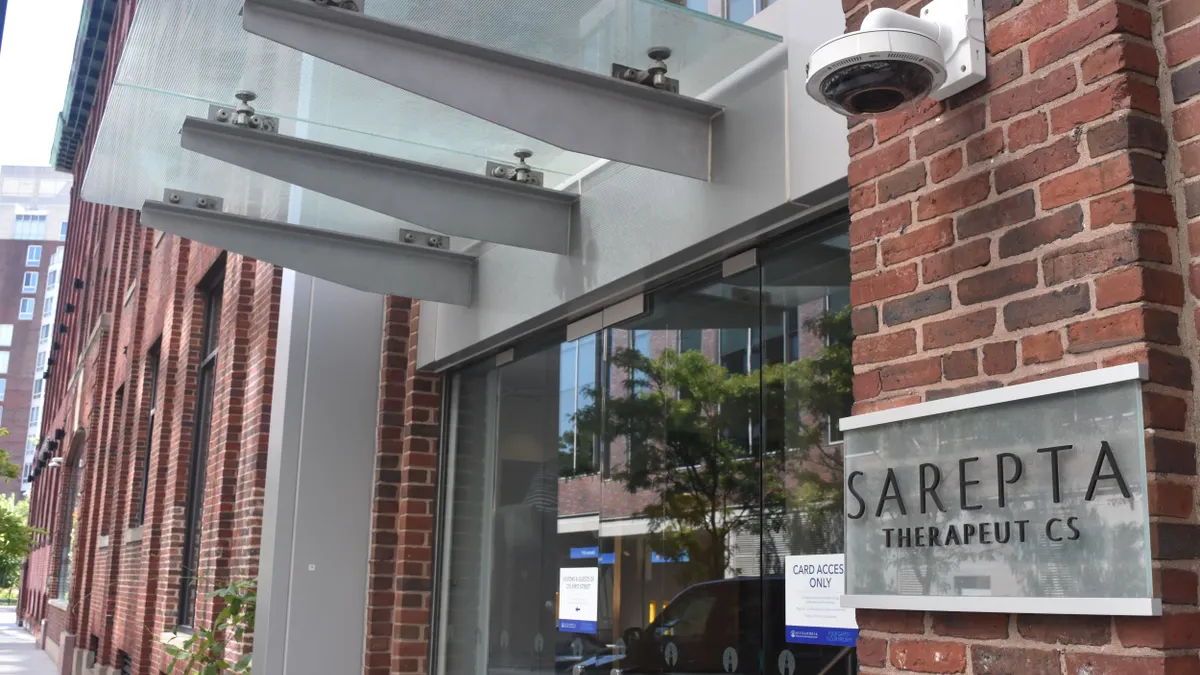European drug regulators on Friday recommended rejecting Sarepta Therapeutics’ Elevidys in the latest setback for the struggling biotechnology company and its embattled gene therapy for Duchenne muscular dystrophy.
The European Medicines Agency issued a negative opinion on an application submitted by Roche, which owns Elevidys rights outside of the U.S., for clearance in Duchenne patients who are between 3 and 7 years of age and can still walk.
The EMA’s review committee noted how Elevidys failed to significantly improve patients’ ability to move after one year in the key study supporting Roche’s submission, a placebo-controlled trial called Embark. The drug’s principal biological effect — production of a shortened form of the muscle-protecting protein dystrophin — “could not be linked” to an improvement in function, the committee determined.
The EMA panel also concluded the study did not demonstrate effectiveness in a sub-group of patients the company believes respond better to treatment. It didn’t mention the safety of Elevidys, which was linked to the deaths from acute liver failure of two teenagers who could no longer walk.
Despite the negative opinion, Roche said in a statement it intends to work with the EMA to “explore a potential path forward” for Elevidys in Europe, noting the high unmet need for Duchenne treatments. The company highlighted “clinically meaningful and statistically significant improvements” on secondary study objectives, as well as long-term data pooled from multiple trials showing effects on motor function.
"We are disappointed by the [committee’s] negative opinion, given the urgent need for disease-modifying therapies for children in the EU living with Duchenne," Roche Chief Medical Officer Levi Garraway said in a statement. "With an average life expectancy of only 28 years, achieving disease stabilisation is a major advance for individuals living with Duchenne, their families and caregivers. We are confident in the value Elevidys can bring to ambulatory patients."
Roche may ask within 15 days to appeal the decision, which would start a re-examination process that typically takes several months. While some companies have overturned rejections in Europe, Roche’s chances of success are “likely going to be low,” wrote Brian Abrahams, an analyst at RBC Capital Markets, in a Friday note to investors.
The news is another blow for Sarepta, which over the last week has halted Elevidys shipments in the U.S. due to safety concerns. Roche also voluntarily stopped distributing the gene therapy in some other countries where it is approved and, on Friday, the health regulator in one those countries, Brazil, temporarily suspended use.
Sarepta had already laid off employees and restructured before these setbacks. But Elevidys and the hundreds of millions of dollars in revenue it was expected to bring in are vital for the company to meet its coming debt obligations and remain viable. The gene therapy’s uncertain status in the U.S. — where Sarepta reportedly may need to accrue more safety data before Elevidys returns to market — could force the company to make more cuts.
Elevidys was controversially approved in the U.S. in 2023, and then cleared for broader use last year. Both times, Peter Marks, the former top gene therapy official at the Food and Drug Administration, overruled agency staff.
Elevidys’ mounting challenges in the U.S. had not raised “high hopes” of an approval in Europe, but the negative opinion Friday nonetheless heaps more pressure on Sarepta, as it removes the potential to receive near- and medium-term milestone and royalty payments from Roche, RBC’s Abrahams wrote.
In addition to its debt, Sarepta has looming payments due to Arrowhead Pharmaceuticals under a collaboration on RNA drugs. Arrowhead this week said it could terminate that deal if Sarepta doesn’t make those payments.
Editor’s note: This story has been updated with details about Brazil’s decision to suspend use of Elevidys.












